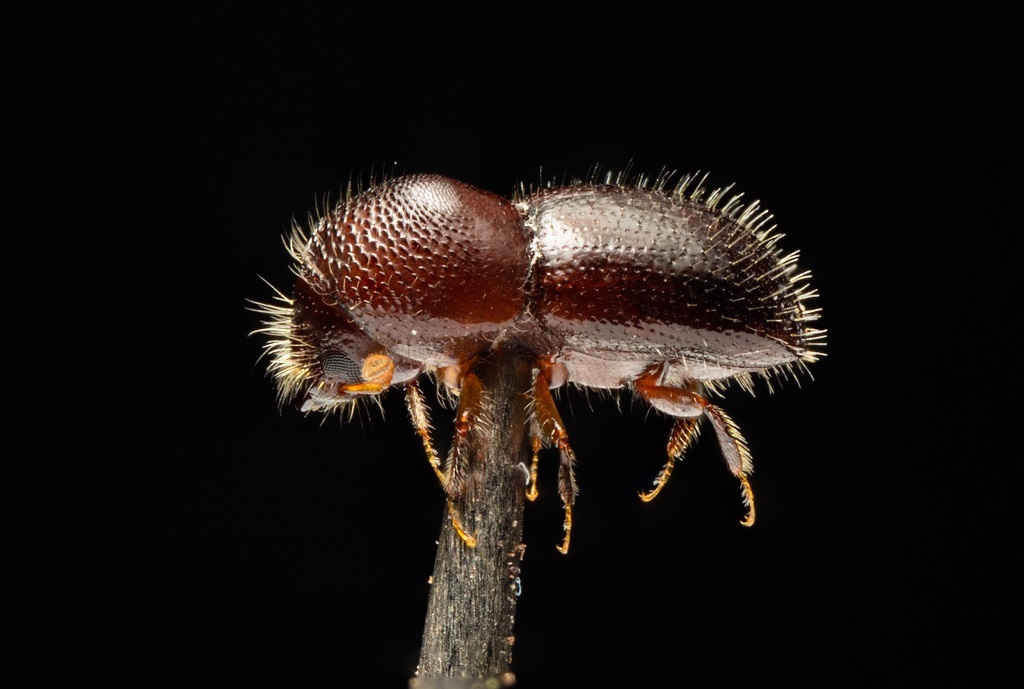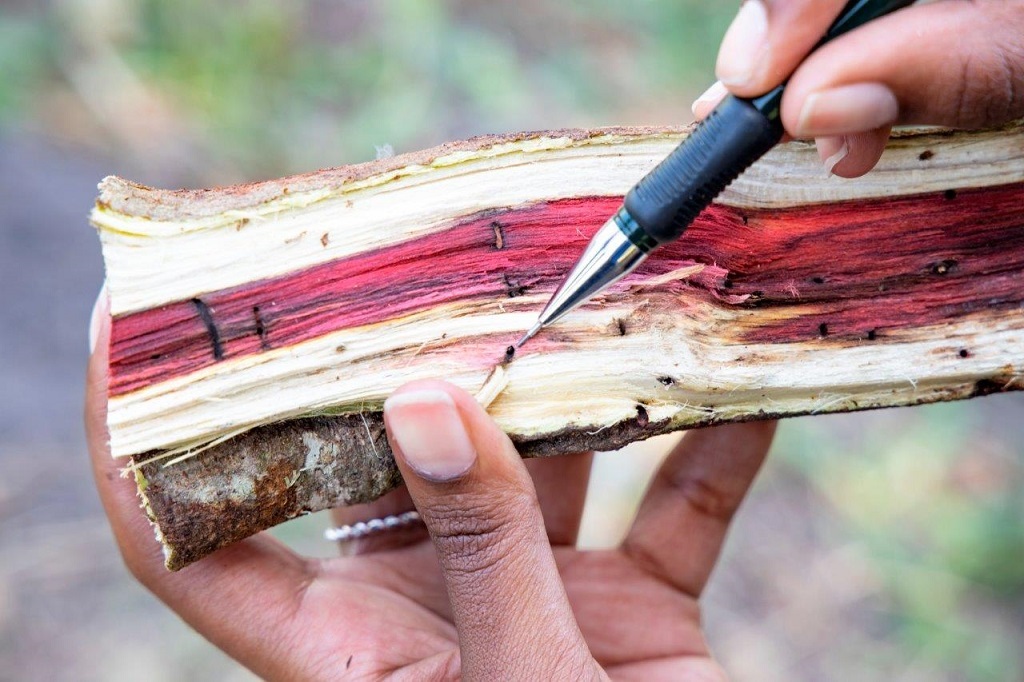
- Urban trees are threatened by a beetle carrying a deadly fungus.
- The infestation has an economic impact of R275 billion, new research shows.
- If nothing is done to prevent spread of the infestation, 65 million urban trees will have to be removed by 2030.
The infestation of a beetle carrying a fungus that is harmful to urban trees has an economic impact of R275 billion, largely linked to the cost of their removal, new research shows.
Academics from Stellenbosch University and the University of Pretoria collaborated on the research. This week, the paper, An assessment of the potential economic impacts of the invasive polyphagous shot hole borer (Coleoptera Curculionidae) in South Africa, was published in the Journal of Economic Entomology.
The polyphagous shot hole borer is an invasive species from southeast Asia, and was first detected in South Africa in 2012. The beetle carries a food source for its young, a fungus - Fusarium euwallaceae - which causes trees to die.
The pest has spread to eight of the country's nine provinces (excluding Limpopo) and is the largest current outbreak globally, according to the paper.
It affects trees in the agriculture and commercial forestry sector, as well as native trees in natural forests. But it will have the largest impact on urban trees as they are already under stress from the urban environment, compared to those found in natural forests. People in urban areas also plant more non-indigenous tree species - many of which are cloned and lack the genetic diversity to fight off pests, explained ecologist professor Francois Roets of Stellenbosch University, who co-authored the paper.
A town like Stellenbosch could lose 20 000 of its big old oaks and plane trees. In Somerset West, close to Stellenbosch, the beetle was detected four years ago, and it has affected more than 10 000 trees, some of which are now dying, said Roets.
If nothing is done to prevent further spread, municipalities will be left to remove about 65 million trees over 10 years (between 2020 and 2030), noted Professor Martin de Wit, an economist at Stellenbosch University's School of Public Leadership.
The cost of removing these infected trees is estimated to be R275 billion over the next 10 years (or $18.45 billion, equivalent to 0.66% of South Africa's GDP). This cost does not include agriculture or commercial forestry operations - or trees on private land outside urban areas.
READ | St Lucia crocs are losing their teeth due to lead poisoning
It's important to prevent further spread by limiting the free movement of potentially infested planting material, wood and wood products, said professor Brian van Wilgen, an ecologist at the Centre of Excellence for Invasion Biology at Stellenbosch University.
The beetle can only fly short distances - 500 metres to two kilometres, which means it has mainly spread as people move wood across municipalities and provinces.
The paper notes that many households in South Africa depend on wood for energy needs - which creates possibilities for the long-distance spread of affected wood, as does firewood used in braais are probably transported over hundreds of kilometres. Trade in infested nursery materials can also facilitate spread, but this is unproven.
There is research to find a biological response to the fungus, and the beetle, which can reproduce rapidly. "It would take at least a decade before the agent [if one can be found] could be released, and even longer before any significant reduction in spread could be expected," the paper read.
Currently, there is no thoroughly tested and approved insecticide or fungicide registered in South Africa to treat the infestation effectively.
READ | Tiny beetle is killing SA's trees - and nothing can stop it
As it is, municipalities are struggling with limited resources and "weak accountability", so it is unrealistic to expect them to have the budget to manage the outbreak without it impacting other municipal services, the paper read. This means citizens may have to carry the cost of removing the trees.
The country needs a "coordinated strategy" to deal with the infestation - and this requires revision of legislation and the creation of policies relating to biological invasions, the authors recommended.
There is a gap in national government policy on biological invasions in South Africa, the paper noted. There needs to be collaboration across different spheres of government and the private sectors, the authors said.
"We need a national policy and coordinated strategy for municipalities to stop this beetle in its tracks," said De Wit. The beetle is not yet listed under the Alien and Invasive Species Regulations, which makes it difficult for municipalities to react effectively, he added.




 Publications
Publications
 Partners
Partners













